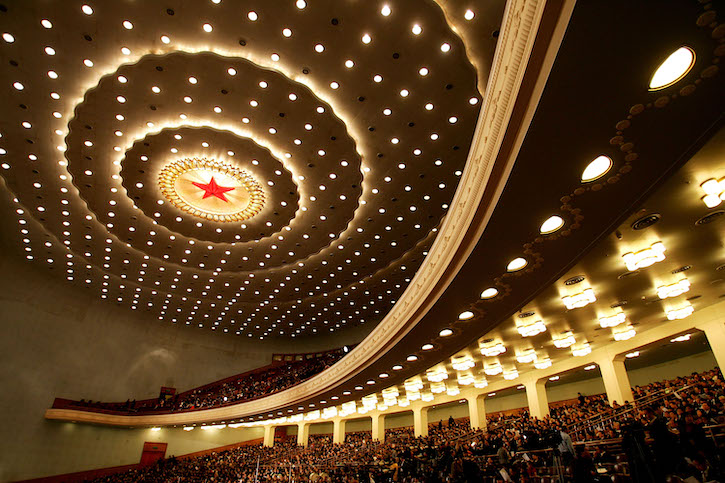
Green finance and the environment were high on the agenda of the recently concluded meeting of the National People’s Congress (NPC), China’s national legislature. While headlines coming out of the meetings were focused on constitutional and personnel changes, it is also clear that addressing the environmental challenges that China faces will be a top priority. In fact, President Xi has announced that he will focus on “three great battles” for the next five years, and tackling environmental pollution and its related issues is one of those three. But in order to meet these challenges, China must develop innovative financing models that will attract private sector capital as the government will only be able to cover about 10-15% of the necessary costs.
From start to finish, the environment – and related green finance – were woven throughout the work reports presented at the NPC. Premier Li Keqiang’s work report that kicked off the NPC vowed to step up ecological and environmental protection and ended with President Xi’s closing speech that China would strive to create a green and environmentally-friendly economy.
He Lifeng, National Development and Reform Commission (NDRC) Chairman, also said on the sidelines of the NPC that China’s new growth direction refers to a pursuit of “higher quality, more efficient, fairer and more sustainable development,” which includes green development.
NPC representatives and governors of regional branches of the People’s Bank of China (PBOC) also underscored green development. Some proposals on green finance included suggestions to improve green finance standards, to expand green finance reform and pilots, and to improve green finance information disclosure mechanisms. Others called for action on issuance of regulations to manage national carbon emissions trading, inclusive financial services for rural revitalization, and upgrading the financial regulatory system to manage risks associated with fintech. The level of attention for green development from the highest levels to the local representatives at the NPC indicate the growing importance of the matter and that it will continue to be a priority for Xi.
The new personnel changes will support this continued focus on green finance. Liu He was named the new Vice Premier in charge of China’s financial and economic portfolio, and thus, the super regulator. Vice Premier Liu was a supporter of the launch of the U.S. – China Green Fund with the Paulson Institute and will continue to be involved in the development of the carbon market in his role as head of the Central Financial and Economic Affairs Commission.
Yi Gang was announced as the new governor of the People’s Bank of China to replace outgoing governor Zhou Xiaochuan. Yi Gang has reiterated his on-going support for China’s efforts on green finance, including growth of the green bond market and other types of innovative financing. He has been a longtime supporter of Dr. Ma Jun, former Chief Economist of the PBOC and the “father” of China’s green finance efforts. Dr. Ma will continue to serve as an advisor to the Chinese government on these issues.
We expect to see a major push on green finance, especially as China becomes an “exporter” of its efforts in green development. A priority has been placed on developing carbon markets along the Belt & Road, as well as ensuring that green lending standards are developed and applied. If reality meets expectations, this renewed focus will be truly transformational for infrastructure development as well as in greening the financial system.


